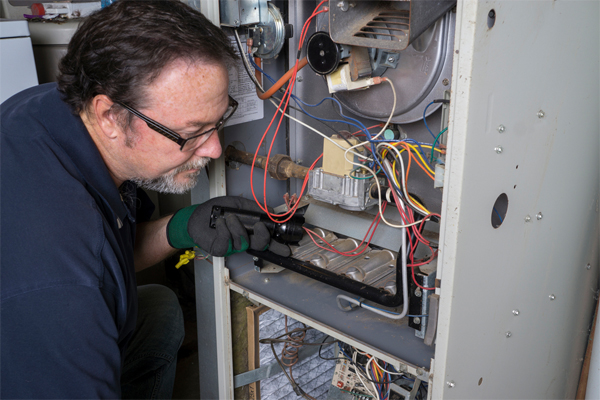
Temperatures around the country are starting to plunge as we welcome the winter season. Homeowners should check their furnaces and make sure that these are ready for the coldest months of the year. If there are any doubts about their working condition, then home heating professionals should be called in to perform furnace tune-ups or repairs. It is better to do this sooner rather than later, as it may become difficult to schedule HVAC services at the peak of winter.
Homeowners tend to have a lot of questions during this time. They want to know whether they should call for one type of service or another. They need guidance as they try to shop for a new furnace while balancing the short-term and long-term costs. Experienced HVAC contractors can provide comprehensive answers for unique situations. For now, we will provide general answers to these furnace FAQ:
Do I Really Need Maintenance On My Furnace?
YES. Furnace maintenance is a necessity. Manufacturers typically require proof of maintenance before honoring the warranty. They provide detailed instructions on how to care for the units in the manual. It’s best to follow these than risk sudden failures and costly repairs. Regular furnace tune-up ensures safety, longevity, and efficiency.
When Should I Call For Furnace Repairs?
You should call for furnace repair as soon as you notice a problem. Any delay will only make the issue worse and ramp up the cost. Problems are easier, faster, and cheaper to resolve during the initial stages. Find a furnace company that has a good reputation among the locals.

When Should I Schedule A Furnace Replacement?
There is no specific timeframe for furnace replacement since units will differ in quality and longevity. Most can last well over a decade with proper care. After ten years, homeowners may want to start saving up. Frequent breakdowns can be stopped once and for all by a new furnace installation.
What Are Furnace Replacement Signs?
You might need a heating system upgrade if you notice multiple symptoms like delayed ignition, inadequate heat, odd smells, worsening corrosion, and pilot light failure. Reduced energy efficiency is also a sign that you should replace your furnace. It manifests as increased energy consumption and rising monthly bills.
How Often Should I Replace My Furnace Filters?
An HVAC air filter will prevent dirt and dust from entering the system to protect indoor air quality. However, the surface will get clogged up over time. Home air filter replacement should be performed regularly as stated in the manufacturer’s manual. Check monthly and replace it when necessary.
What Is The Best Type Of Furnace?
The best furnace is the one that suits your home. It should have just the right heating capacity to provide adequate warmth around the house. It should also have a high AFUE rating. In the US, most furnaces will have a rating that is greater than 80%.
How Can I Reduce My Home Heating Bill?
Home heating is one of the biggest household expenses. Reduce your bills by conducting heating system maintenance on a regular basis. This increases the energy efficiency of the system, so less fuel is consumed throughout the cold months. Setting the thermostat to milder temperatures also helps.

How Do I Determine The Size, Or Capacity, Of A Furnace For My Home?
The correct furnace size can be found by considering multiple factors, including the total floor area, the ceiling height, the insulation, the orientation, the amount of shade from trees, and the regional climate. Knowledgeable HVAC contractors will be able to perform a Manual J load calculation for a precise figure.
How Long Will My New Furnace Last?
Furnace lifespan varies greatly from one home to another. Homeowners can expect their new installation to last over 20 years as long as the unit receives proper care. It should also be of the right size for your home. If unsure, go to an HVAC contractor and ask about sizing estimates.
What Is A Furnace’s AFUE Rating?
The Annual Fuel Utilization Efficiency ratio measures a unit’s heat production relative to its fuel consumption. What is a good AFUE rating? It should at least be 80% and ideally greater than 90%. Check how to find AFUE rating from your user manual. It’s usually printed on the faceplate.
Conclusion
Furnaces can be relied upon to provide warmth and comfort during winter for a long time. Their lifespan can even exceed two decades, but homeowners will need to do their part in maintaining the system. They should monitor the air filters and change them whenever necessary. They should also call in the professionals for annual tune-ups. This will include a comprehensive inspection and cleaning. Minor repairs will be performed when needed.
As for those who have an older unit, the possibility of getting a replacement may be considered. Frequent breakdowns, spiraling fuel consumption, poor performance, and extreme old age are all good reasons to get a new unit. Just make sure that the replacement furnace will be of the right size for the house. Manual J load calculations should be performed to arrive at the necessary heating capacity. A high-efficiency unit would be ideal.
Call Point Bay Fuel For All Of Your Home Heating Requirements
Point Bay Fuel offers superior heating and cooling services in the area. We hire the best NATE certified technicians who can provide you with excellent HVAC tune-ups, repairs, installations, and replacements. Each of our techs has the knowledge and experience to service your HVAC system correctly.
Need a heating system repair or replacement? No worries. You are in good hands with Point Bay Fuel. We guarantee the most competitive furnace repair and replacement costs in the area. If you happen to need a replacement system, we can recommend the best one for your home while staying within your budget. As always, we prioritize energy efficiency, comfort, indoor air quality, and more. To schedule an appointment, give us a call today for a free, in-home estimate.
Contact us now by calling (732) 349-5059 to speak to one of our home comfort specialists!
The post Common Furnace FAQs appeared first on Point Bay Fuel.
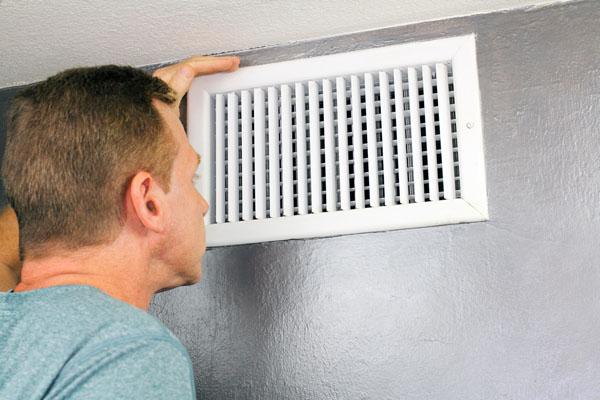

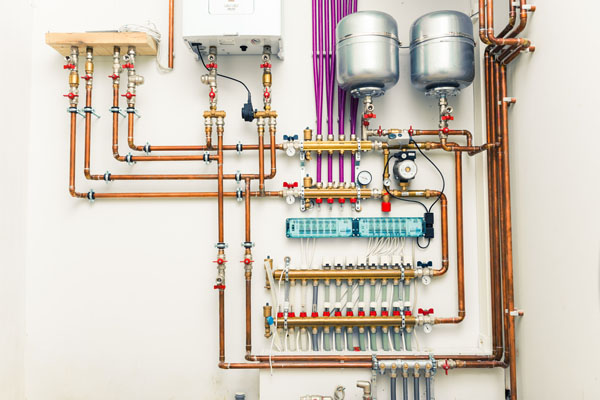
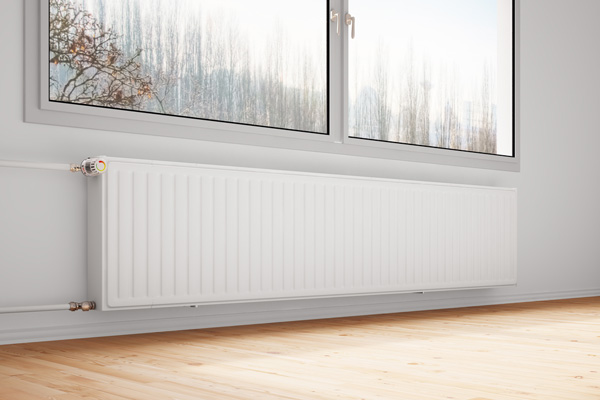
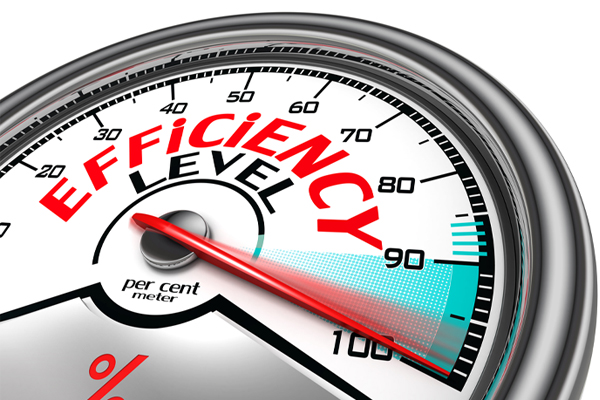
 Air pollution is typically associated with dirty factories, car exhaust, and other factors that create poor outdoor air quality. Many fail to realize that pollution can occur indoors, as well.
Air pollution is typically associated with dirty factories, car exhaust, and other factors that create poor outdoor air quality. Many fail to realize that pollution can occur indoors, as well. Homeowners should pay attention, or they might suffer the consequences of poor indoor air quality. Family members may start exhibiting symptoms of respiratory ailments such as asthma attacks, persistent coughs, and breathing problems. They can experience chronic fatigue and digestive issues. The worst cases of indoor air quality can even lead to cancer.
Homeowners should pay attention, or they might suffer the consequences of poor indoor air quality. Family members may start exhibiting symptoms of respiratory ailments such as asthma attacks, persistent coughs, and breathing problems. They can experience chronic fatigue and digestive issues. The worst cases of indoor air quality can even lead to cancer.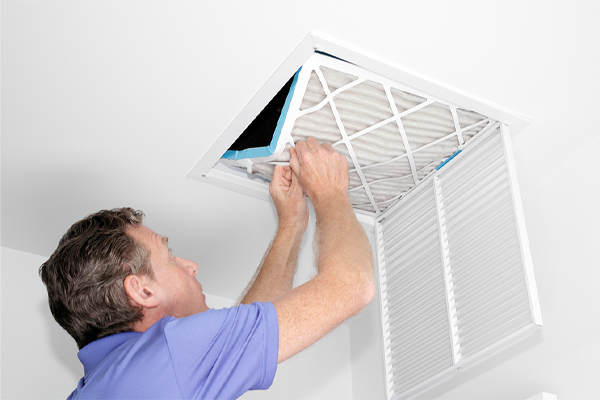 HVAC systems can air filters that are designed to remove pollutants from the air. However, the dirt build-up on their surfaces will eventually interfere with airflow and lead to inefficiencies. They need periodic cleaning and replacement. A monthly casual inspection should determine whether it’s time to do so.
HVAC systems can air filters that are designed to remove pollutants from the air. However, the dirt build-up on their surfaces will eventually interfere with airflow and lead to inefficiencies. They need periodic cleaning and replacement. A monthly casual inspection should determine whether it’s time to do so.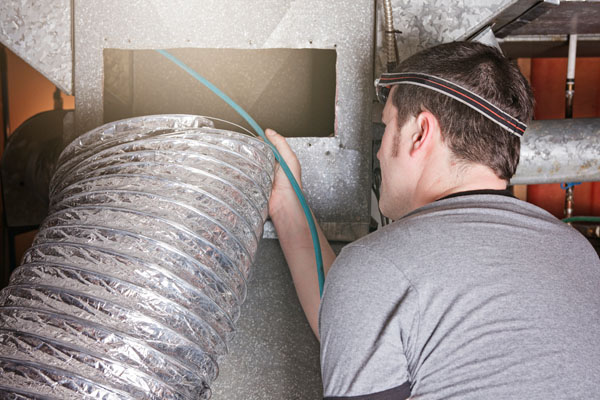 As mentioned above, the ducts are responsible for channeling the indoor air where it needs to go. They terminate in every room in the house to keep everyone comfortable. Ductwork inspections should be performed on every so often to make sure that the system is clean and free from pollutants.
As mentioned above, the ducts are responsible for channeling the indoor air where it needs to go. They terminate in every room in the house to keep everyone comfortable. Ductwork inspections should be performed on every so often to make sure that the system is clean and free from pollutants.